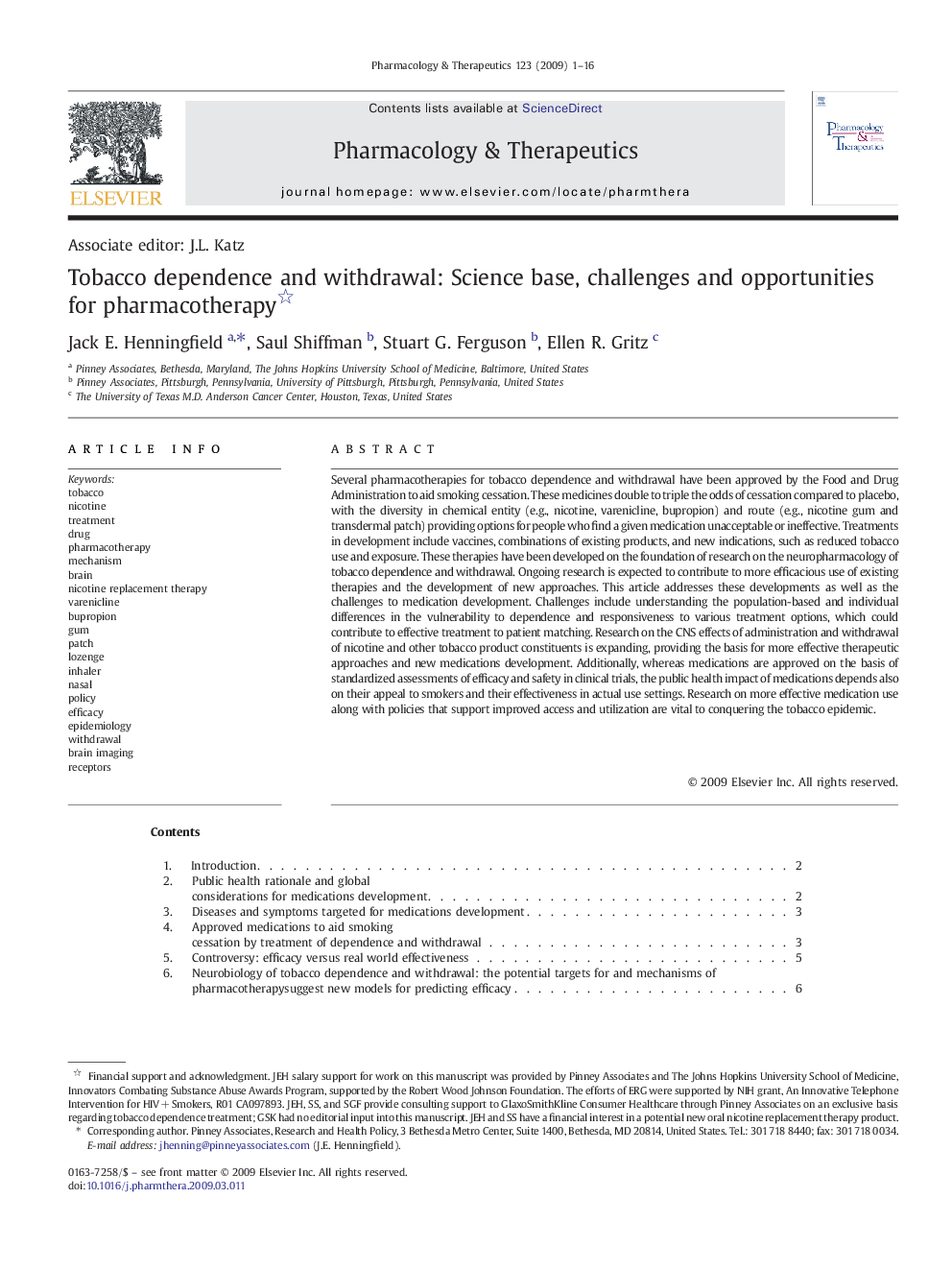| Article ID | Journal | Published Year | Pages | File Type |
|---|---|---|---|---|
| 2563743 | Pharmacology & Therapeutics | 2009 | 16 Pages |
Several pharmacotherapies for tobacco dependence and withdrawal have been approved by the Food and Drug Administration to aid smoking cessation. These medicines double to triple the odds of cessation compared to placebo, with the diversity in chemical entity (e.g., nicotine, varenicline, bupropion) and route (e.g., nicotine gum and transdermal patch) providing options for people who find a given medication unacceptable or ineffective. Treatments in development include vaccines, combinations of existing products, and new indications, such as reduced tobacco use and exposure. These therapies have been developed on the foundation of research on the neuropharmacology of tobacco dependence and withdrawal. Ongoing research is expected to contribute to more efficacious use of existing therapies and the development of new approaches. This article addresses these developments as well as the challenges to medication development. Challenges include understanding the population-based and individual differences in the vulnerability to dependence and responsiveness to various treatment options, which could contribute to effective treatment to patient matching. Research on the CNS effects of administration and withdrawal of nicotine and other tobacco product constituents is expanding, providing the basis for more effective therapeutic approaches and new medications development. Additionally, whereas medications are approved on the basis of standardized assessments of efficacy and safety in clinical trials, the public health impact of medications depends also on their appeal to smokers and their effectiveness in actual use settings. Research on more effective medication use along with policies that support improved access and utilization are vital to conquering the tobacco epidemic.
